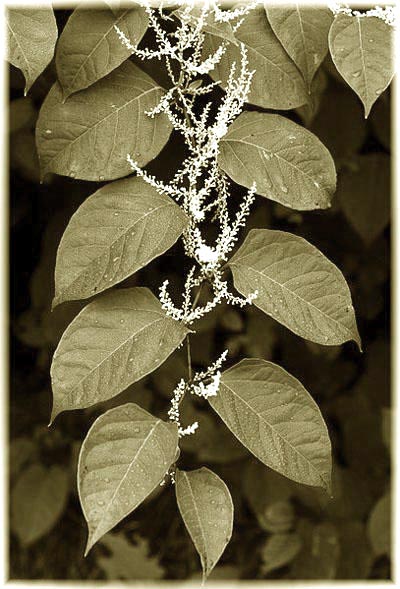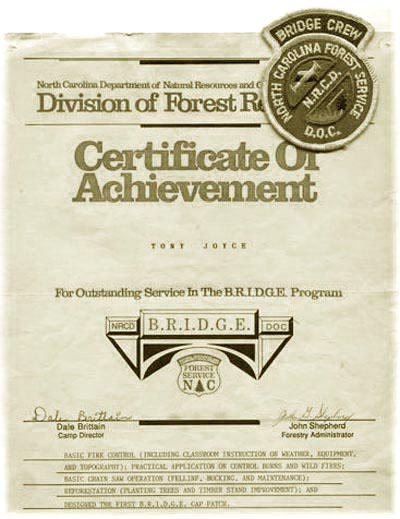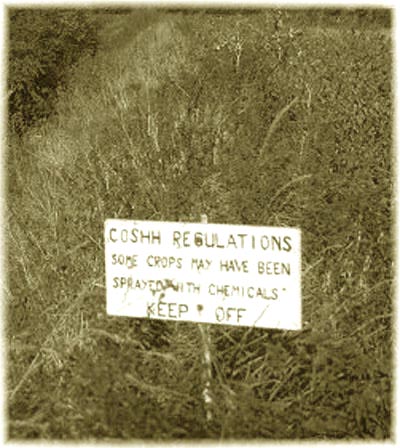
It seems hard to believe that a plant could be responsible for serious construction problems, including delays of over three years for road building projects and expensive and time-consuming eradication treatment at the Olympic site.
Not only can its presence delay dealings with land, but freeholders could face criminal sanctions and the potentially significant treatment costs should it be left untreated or disposed of in an unauthorised way.
The notoriety of the Japanese knotweed species (or Fallopia japonica) is well earned. Knotweed grows rapidly above and below ground with a roof system and feelers that snap like carrots, all of which are capable of re-growth. It can damage concrete foundations, buildings, flood defences, roads, paving and retaining walls.
Over the last thirty years considerable effort has been exerted by Parliament and Europe to halt its encroachment. If only the Victorians who introduced it to these shores as an ornamental plant, had known!
Herbicides used to treat knotweed, including picloram (Tordon 22K), imazapyr (Arsenal) and triclopyr (Garlon 4) are highly toxic if inhaled. All can cause irreversible eye damage and triclopyr is a known carcinogen. For these reasons, such herbicides are subject to health and safety legislation, with more extensive regulation for commercial use.
For the purposes of UK legislation, the term 'pesticide' also includes herbicides.
Current Law - the Main Players:
Section 14 of the Wildlife and Countryside Act 1981
It is a criminal offence to plant or otherwise grow certain types of plant including Japanese Knotweed (Schedule 9 of the Act). Any person found guilty of an offence under the 1981 Act faces a fine of £5,000 fine and/or imprisonment for up to six months and or an unlimited fine and two years imprisonment, on indictment. These penalties also apply to the Directors, Members, Manager or Company Secretary of a Limited Company if it is proved that the offence was committed with that person's consent or by neglect
The Control of Pesticides Regulations 1986 (as amended by The Control of Pesticides (Amendment) Regulations 1997)
Schedule 2, paragraph 2 ( 1)
Any person who sells, supplies or stores a pesticide shall — take reasonable precautions to protect the health of human beings and the environment and be (2) competent in carrying out that duty.
Schedule 2, paragraph 7(1)
No person (born after 31 December 1964) in the course of a commercial service shall use a pesticide approved for agricultural use unless that person has
- has obtained a certificate of competence recognised by the Ministers; or
- uses that pesticide under the direct and personal supervision of a person who holds such a certificate; or
- uses it in accordance with an approval, if any, for domestic use, animal husbandry, etc.
Commercial service means the application of pesticide by a person to land not in the ownership or occupation of that person or that person's employer
Approved for Agricultural use includes 'amenity horticulture'
Section 33 (Part II) of The Environmental Protection 1990
It is an offence to dispose of knotweed without using a regulated organisation holding a 'Controlled Waste' Management Licence. Any person or company found guilty of this offence faces a fine, enforcement costs, clear up costs and forfeiture of the vehicle employed to dispose of the weed.
The Control of Substances Hazardous to Health Regulations (COSHH) 2002
Section 6
A Risk assessment be undertaken to:-
- identify hazards and assess risks to human health and safety
- consider all hazards
- first consider substitution with less hazardous agent or alternative method of work or work process
- identify any particular groups of people who may be at increased risk
Section 14 (2)
No fumigation can take place unless leaseholders have been notified of the intention to undertake the fumigation and that at least 24 hours notice has been provided
Section 14 (3)
Before the fumigation takes place, warning notices have been affixed to entry and exit points of the site stating that the fumigation is taking place
Section 12 (1)
Anyone who applies the [knotweed] treatment must be trained
The Plant Protection Products (Sustainable Use) Regulations 2012 (effective from 20 June 2012)
Section 5 (6)
A specified certificate provides evidence of sufficient knowledge of the subjects listed in Annex I to the Directive acquired by professional users , distributors and advisors either by undergoing training or by other means.
Section 8 (1)
No person shall use a [knotweed treatment] authorised for professional use unless they hold a specified certificate or work under supervision
Note: Section 8 (1) of the 2012 Regulations does not apply if the person using the treatment was born before 31 December 1964 and he or she uses plant protection products authorised for professional use on crops, land, produce, buildings, or the contents of buildings, materials or other areas intended to be treated which are owned or occupied by himself or herself or by his or her employer and he or she is competent to use such products. This exemption ceases to have effect on 25 November 2015.
Section 9 (5)
A professional user is only able to purchase a professional treatment for knotweed if he or she holds a Certificate of Competence or if the freeholder or agent intend to work under supervision or where the intention was that the individual would work under supervision.
Section 11
If the knotweed equipment involves a boom sprayer long than three meters, is vehicle mounted or uses a drawn sprayer which broadcasts spray droplets, the equipment must be inspected every 4 years.
Section 13
A professional user must conduct regular calibrations and technical checks of the knotweed spray equipment they use.
Section 17
A professional user who is carrying out the knotweed treatment must take all reasonable precautions to ensure that such operations do not endanger human health or the environment.
Section 17 (6)
Storage of a knotweed treatment is subject to regulation and a permit is required.
Section 18 (6)
In all civil and criminal proceedings any Code [of Conduct] issued under this regulation shall be admissible in evidence and if the failure to follow any guidance in such a code appears to the court conducting the proceedings to be relevant to any question arising in the proceedings, it shall be taken into account in determining that question.
Section 27
Penalties - conviction can lead to a fine of up to Level 5 on the standard scale. Under Schedule 3, 6, the authorities have the power to seize equipment and order immediate remedial action.
Professional User means any person who uses plant protection products in the course of their work activities, including operators, technicians, employers and self-employed people, both in the farming and other sectors and "professional use" shall be construed accordingly
It was the case that until the introduction of The Plant Protection Products (Sustainable Use) Regulations 2012, (effective from 20 June 2012), freeholders or their agents were not required to hold a Certificate of Competence to carry out eradication treatment of knotweed on residential leasehold premises.
This is because it did not fall within the meaning of 'commercial services' set out in The Control of Pesticides Regulations 1986 (as amended by The Control of Pesticides (Amendment) Regulations 1997) as the common parts (usually including interior and exterior land) is owned by the freeholder.
Instead the freehold owner or its agent was only required to (subjectively) use it safely and take 'reasonable precautions' to store the knotweed treatment safely and competently and from 1990, to dispose of the knotweed using regulated organisation holding a 'Controlled Waste' Management Licence.
What is a Certificate of Competence?

A Certificate of Competence is a qualification called a City & Guilds NPTC (National Proficiency Testing Council) Award in Safe Use of Pesticides, which is divided into fifteen subject areas. All successful candidates are entered on the Register held by the National Proficiency Testing Council (NPTC). Advice on the correct qualifications can be obtained from the NPTC or from BASIS. BASIS® is an independent organisation set up at the suggestion of the UK Government in 1978 to establish and assess standards in the pesticide industry relating to storage, transport and competence of staff. Successful candidates can also apply to the National Register of Spray Operators (NRoSO) and thereafter maintain a certain number of continued development training points every year.
Leaseholders may draw a sigh of relief that, from 20 June 2012, their premises fall within the requirement for any person, including the freeholder or agent, to hold a NPTC Level 2 qualification before applying knotweed treatment. Relief, however, may be short-lived as the legislation contains a curious historic exemption. If your freeholder or agent applying the treatment were born before 31 December 1964, the qualification is not required. These are called 'grandfather rights' and will continue until 25 November 2015. It is not known why this exemption has persisted. Arguably, it is not reasonable from a practical or Human Rights basis to exclude half the population from the requirement to meet the required standard of competence. This is particularly relevant where millions of leaseholders stand to be materially affected by the exclusion. Furthermore, how is a leaseholder able to ascertain whether the individual in question does qualify for the exemption. Are leaseholders expected to apply for disclosure of his/her date of birth in the County Court or Tribunal, where withheld?
Knotweed at Ground Level

Encountering knotweed treatment in service charges notices is becoming commonplace. Treatments are expensive and whilst many of these clearance programmes are legitimate and essential, some freeholders and/or their agents have used knotweed as an additional and unlawful source of revenue raising.
One of Pro-Leagle's recent cases highlighted a managing agent of a block of leasehold flats who routinely charged for knotweed treatment despite there being no evidence of its existence. Records showed that the treatment spray was applied during the winter when the plant would ordinarily have shed its leaves and died back. More importantly, however, the Managing Agent whose company undertook the work, whilst RICS (Royal Institute of Chartered Surveyors) regulated, was not Certified as "Competent" for the "Safe Use of Pesticides". In addition, no Risk Assessment, advance notification to leaseholders or warnings around the garden were provided, in contravention of COSHH Regulations.
Leaseholders who suspect that a claim for treatment of knotweed is suspicious should contact their freeholder or agent for evidence of its existence and request a copy of the Risk Assessment report prepared. Failing receipt of which, it is usually reasonable to withhold service charges. Failure to follow the correct procedure set out in the above legislation could also be grounds to refuse payment, although leaseholders must be prepared to defend this decision in the County Court or Tribunal. Such a claim is usually made at the same time as setting out other reasons for withholding payment of service or administration charges, to be cost effective.
This article was provided by Pro-Leagle - The Law Firm for Laymen
Written by Corinne Tuplin (LLB, LPC) Solicitor, 19 September 2012